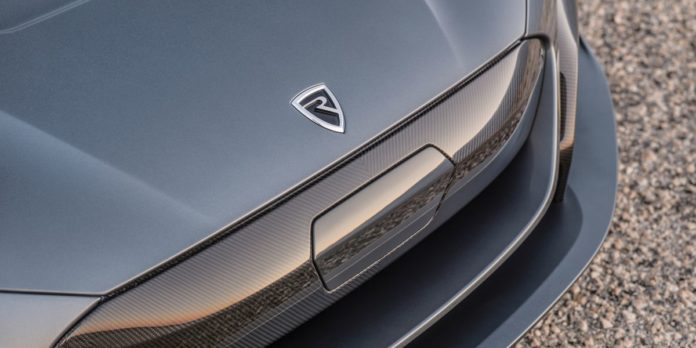- Croatian startup Rimac, known for its electric Nevera hypercar and joint venture with Bugatti, is preparing an autonomous shuttle for a 2026 launch, according to Autocar.
- The Project 3 Mobility, as it’s currently known, will break cover this year before undergoing a pilot program in Croatia’s capital, Zagreb.
- Rimac is reportedly in talks with 20 cities in Europe and the Middle East to expand the robotaxi service after the pilot program is completed.
Rimac’s rise has been meteoric. The Croatian startup has metamorphosed from an obscure supercar builder to an electric-vehicle powerhouse, with substantial investment from Porsche in creating a hypercar joint venture between Rimac and Bugatti in 2021. Now the company is planning to move beyond high-performance machines, with Autocar reporting that Rimac will reveal an autonomous “robotaxi” early this year before the vehicle hits the road in 2026.
Currently dubbed the Project 3 Mobility, the Rimac self-driving shuttle, according to Autocar, will be produced thanks to some backing from Kia; Hyundai and Kia first invested roughly $90 million in the startup back in 2019. The Project 3 vehicle will be a separate brand under the Rimac Group umbrella, not directly linked to the Rimac supercar business or the Bugatti brand, although undoubtedly utilizing learnings from the development of the company’s 1000-plus-horsepower hypercars. The vehicle’s development is being undertaken in the Croatian capital of Zagreb, close to Rimac’s headquarters, with around 100 R&D engineers also operating out of a new facility in the United Kingdom.
Details are slim, but founder and CEO Mate Rimac told Autocar that the robotaxi will strive to “change the lives of more people” than the company’s first two vehicles, the sporty and pricey Concept_One and Nevera. The vehicle will reportedly be able to drive entirely without human input, with Rimac calling it “a car but a completely different type.” The company has been spotted testing the Renault Espace minivan, suggesting that the robotaxi could take on a large, podlike shape designed to maximize interior space.
Robotaxi to Get Its Own Factory
Rimac is also planning on building an infrastructure network of chargers, storage hubs, and parking spaces alongside the robotaxi. The robotaxi is expected to hit the streets in 2026 as part of a mobility service, which Rimac described as premium but not “expensive or posh.” Rimac plans to build a dedicated factory for the robotaxi before expanding operations beyond Croatia, with the eventual goal of exporting tens of thousands of units each year.
Autocar reports that Rimac is in discussions with 20 cities in Europe and the Middle East for the robotaxi service. A pilot program will come first in Zagreb, with operations supposed to start in 2026. The robotaxi is expected to arrive in Germany and the U.K. the following year. Setbacks for General Motors’ Cruise division over the past several months has proved that launching the robotaxi service in the United States may be more challenging, and it appears it isn’t a priority for the Croatian automaker. Keep an eye out for more details later this year when we catch our first glimpse of Rimac’s new endeavor.
Caleb Miller began blogging about cars at 13 years old, and he realized his dream of writing for a car magazine after graduating from Carnegie Mellon University and joining the Car and Driver team. He loves quirky and obscure autos, aiming to one day own something bizarre like a Nissan S-Cargo, and is an avid motorsports fan.

